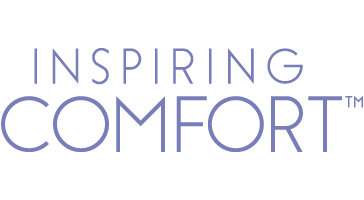Results Are In From Inspiring Comfort Pilot Research Study
October 19, 2021 (Great Falls, VA) — In May 2020, Inspiring Comfort was awarded a pilot research study from the Suicide Prevention Center of New York (SPCNY) to deliver and examine the effectiveness of our Comfort Skills Programming - specifically, our Project Comfort youth programming.
To implement the research study, we partnered with the Nathan S. Kline Institute for Psychiatric Research at Montclair State University. SPCNY identified the Lorges School, a high risk, special education middle school in New York City, as an ideal candidate for Inspiring Comfort’s programs.
But then, the COVID-19 pandemic hit. Schools and classrooms were shut down. Remote learning completely changed the foundation of person-to-person care. More than ever, students were isolated from each other. For months, it seemed like the pilot research study might never happen.
It was the resilience and dedication of SPCNY, Montclair State University, and the Lorges School that made the program and study happen against all pandemic odds. “Everyone was in it together to see how we could work through the challenges,” says Ellen Mollen, LCSW, Clinical Supervisor at the Lorges School.
The study took place from March through June of 2021. Given that the program was delivered remotely, assuring that students felt seen and heard, even with their cameras off, was a huge priority. The goals of the program were to:
Learn to recognize verbal and non-verbal communication
Learn safe and appropriate ways to respond with compassion and care
Increase social and school connectedness that will reduce feelings of loneliness, isolation, anxiety, and stress
Create a school climate more conducive to helping peer and adult relationships
The evaluation was designed to assess the feasibility of the program (rates of enrollment, session attendance, and completion rates) and the acceptability of the program (students’ perceptions, program satisfaction, and what in the program demonstrates initial promise).
Despite the fact that the program was delivered both during the pandemic and remotely, the results were astounding.
Results from Inspiring Comfort’s pilot research study, collected by the Nathan S. Kline Institute for Psychiatric Research at Montclair State University.
Even though students were already burnt out from a year of online learning, the majority of students consistently attended the sessions. Results from self-report measures demonstrated a significant decrease in depression and loneliness symptoms in students from pre and post intervention, and a significant increase in compassion for others and self. According to the feedback survey from the program, 100% of students who participated in the program said that they would recommend this program to a peer.
“This program and study really speak to this reciprocal dynamic between compassion for others and compassion for self,” says Taylor Walls, M.A. and Montclair State University researcher, “It imparts in youth skills and strategies to increase their feelings of belonging.”
The staff at the Lorges School was enthusiastic as well. Ellen Mollen, LCSW, Clinical Supervisor at the Lorges School, emphasized how the program’s elements of relationship building, multi-sensory learning, and focus on conversation helped students in terms of language and social skills. She says of the program:
“It speaks to student’s strengths - you can give to others. Our students are often the recipients of services. They’ve come to us with a history of failure, usually in the public school system, and now they’re referred to a special education school, a more restrictive setting, and they don’t have very much confidence in themselves and in their ability to give to others. Now, they see themselves empowered to recognize their own strengths and to help others.”
Founder of Inspiring Comfort Jen Marr, who ran the program, says of her experience:
“Doing this program remotely forced us to work with a totally new learning environment. We learned to engage staff and faculty with the students in meaningful conversations. To compensate for lack of in-person interactions, increased use of affirmations and appreciation were implemented. The resulting atmosphere of belonging and trust in a virtual environment was more than we thought possible.”
Thank you to Montclair State University, the New York State Office of Mental Health, the Suicide Prevention Center of New York, and The Lorges School for believing in the power and resilience of comfort as a skill and for making this happen against pandemic odds!
A summary report is currently being written for publication.


